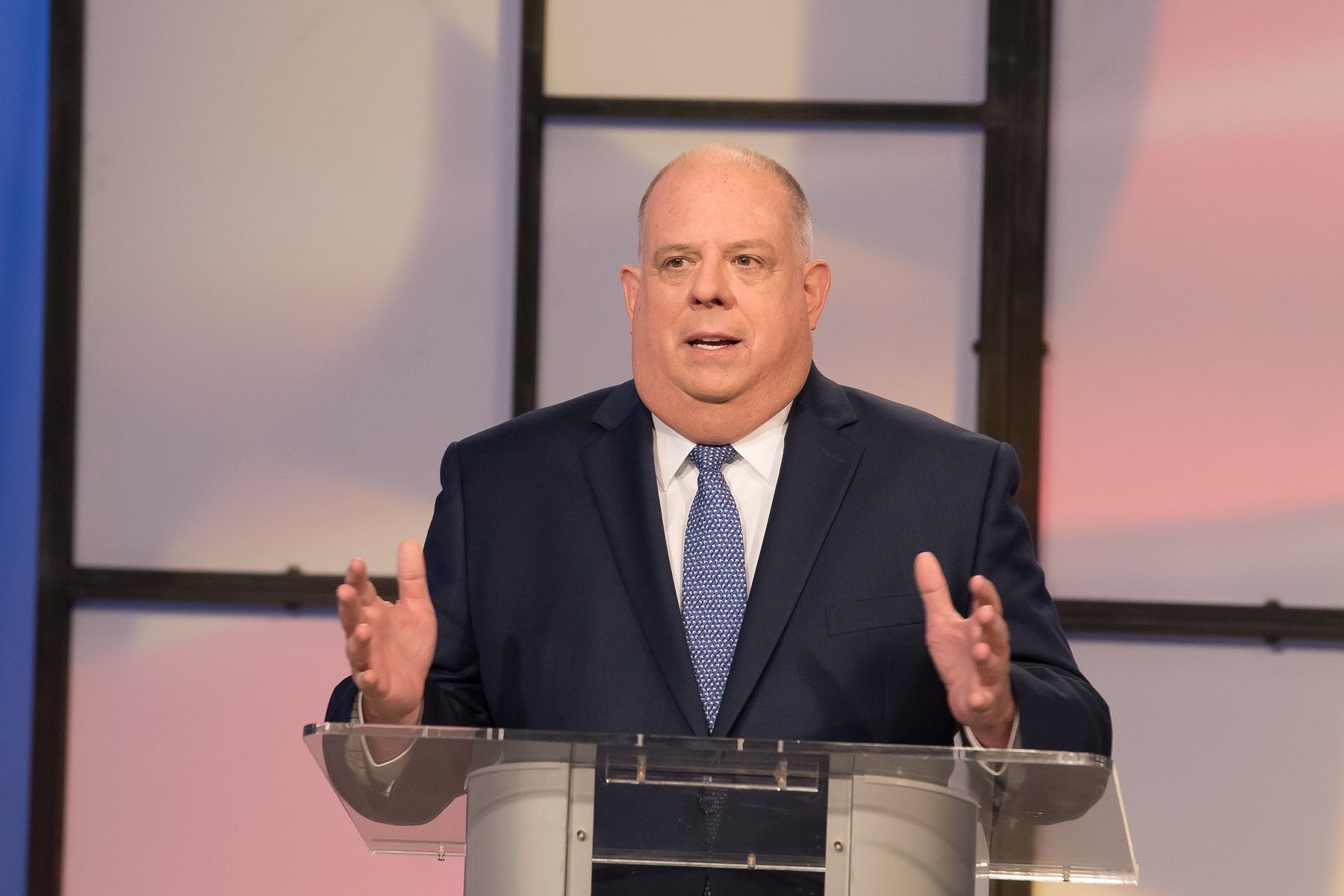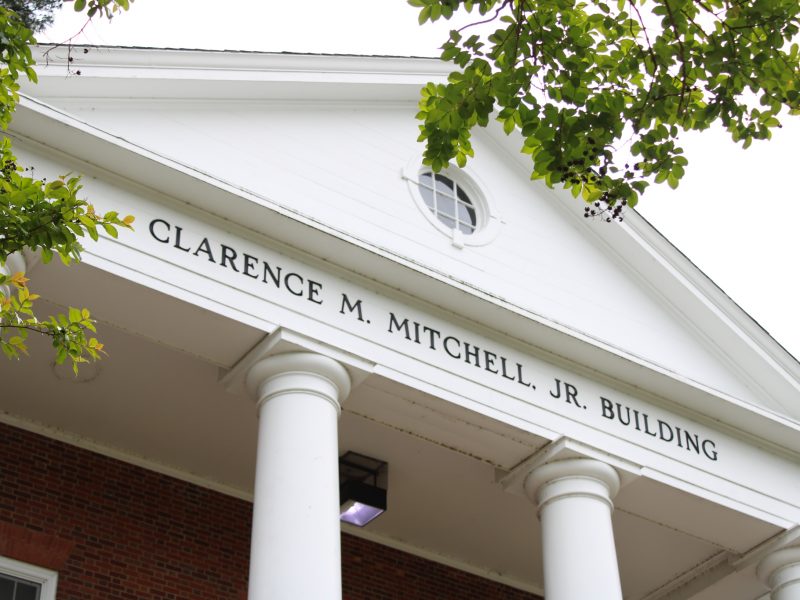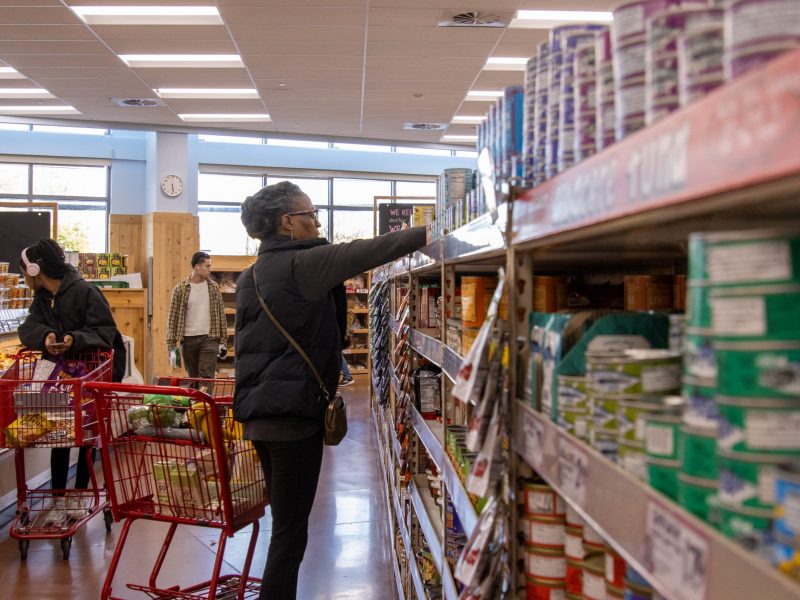Just over a month before Maryland’s gubernatorial election, incumbent Republican Larry Hogan has a 20-point lead over challenger Ben Jealous, according to a Washington Post-University of Maryland poll released Tuesday.
Though Democrats outnumber Republicans 2 to 1 in Maryland, about a third of registered Democrats — 35 percent — said they planned to vote for Hogan, while 58 percent indicated plans to vote for Jealous, according to The Post.
Prince George’s County is the only major geographic area in the state where Jealous leads Hogan, according to The Post. Fifty-six percent of all registered voters plan to vote for Hogan while 36 percent plan to vote for Jealous.
Junior chemistry major Nora Deibler, who plans to vote for Jealous, said that didn’t surprise her.
“People know the name Larry Hogan more,” she said. “If they’re not educated on the policies, they’re more likely to vote for the name they recognize.”
[Read more: Some UMD students say they aren’t feeling engaged in governor’s race]
Chris Richter, the vice president of this university’s College Democrats chapter, said that despite Jealous’ lower name recognition, his policies — like legalizing marijuana and reforming the healthcare system — “have been shown to be broadly popular.”
“We need to show voters they’re connected,” said Richter, a senior finance and government and politics major.
The poll, conducted over the phone last week, was a random sampling of 870 Maryland residents, 814 of whom were registered voters.
More registered voters said they trust Hogan to handle the economy, taxes, health care and public education than Jealous, according to the Post. Seventy-six percent of registered voters said they had positive feelings about Maryland’s economy — a centerpiece of Hogan’s platform — up from 46 percent in February 2013.
Hogan has provided $1.2 billion in “tax, toll, and fee relief to Maryland families and small businesses,” according to his campaign website.
[Read more: Maryland enacted hundreds of laws this month. Here’s a few that stood out.]
Maryland’s unemployment rate was just over 4 percent in August of this year, down from over 5 percent from when Hogan took office in January of 2015, according to the Bureau of Labor Statistics.
But Jealous advocates economic reform, arguing that wage growth has fallen behind, according to his campaign website. He wants to raise minimum wage to $15 an hour and develop “new incentives to hire the formerly incarcerated.” In September, he announced a plan to decrease Maryland’s sales tax from six percent to 5.75 percent.
On education, Jealous has proposed extending his plan to make community college free for Maryland residents and DACA recipients. He proposed raising taxes for the top 1 percent of earners in Maryland to fund the plan, which would cost about $3 million a year, according to The Capital Gazette.
Ben Colebrook, this university’s College Republicans president, wrote in an email that Hogan “has demonstrated his ability to reach across the aisle and work with Democrats on countless agenda items.”
“His willingness to work with Democrats is what truly sets him apart from many Republicans; it is no wonder he is so popular with the Democrats,” wrote the junior computer science and math major. “He leads from the middle and Democrat and Republican leaders alike should take lessons from him.”
But Christie Batista, a senior anthropology major, said she thought the current political climate could sway the vote leftward.
“Maryland is such a liberal state, I would be surprised if we [re-elected] a Republican governor, especially with the stances that some Republicans in the federal government are taking,” said Batista, who said she plans to vote but needs to conduct more research on the candidates.
Among registered voters, 68 percent had a favorable view of Hogan, while 36 percent had a favorable view of Jealous. Nearly one-third of registered voters said they had no opinion toward Jealous; 14 percent said the same of Hogan.
The poll also showed that registered voters are seeing Hogan on TV more than Jealous. While 60 percent of voters have seen ads for Hogan, only 44 percent have seen ads for Jealous.
The Post reported that Hogan’s campaign and his allies, like the Republican Governors Association, have spent about $7.5 million in television ads in the past few months, while Jealous’ campaign and allies have spent about $1.4 million.
Hogan had just over $8 million in the bank as of Aug. 21, while Jealous had less than $300,000, according to the Maryland Campaign Reporting Information System.
Still, Richter expressed hope at Jealous’ high polling numbers in Prince George’s County.
“Our message is getting through here better than other places,” he said.



